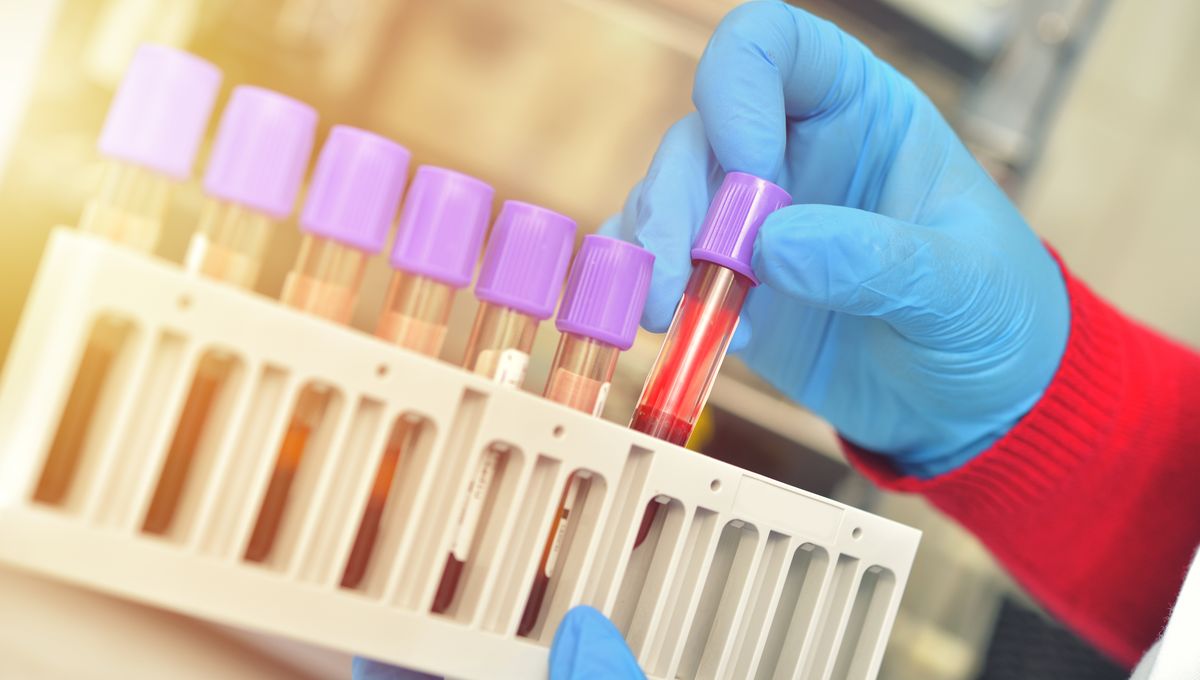
Monitoring HIV status could become easier than ever before, thanks to an innovative new device developed by a team at Johns Hopkins University. The device is powered by a smartphone and uses CRISPR technology to produce a result in just 15 minutes, giving patients a rapid and accurate measurement of their viral load.
“We want to develop a new diagnostic tool that can help the nearly 38 million people living with HIV/AIDS in the world monitor their viral loads more regularly and without needing hospital visits,” first author Dr Hoan Ngo, on behalf of senior authors Drs Kuangwen Hsieh and Tza-Huei Wang, told IFLScience. “We are always interested in elegantly integrating new molecular tests, detection strategies, and artificial intelligence. We are excited that the clinical and technological aspects come together perfectly for this project.”
In the study, which has been posted as a preprint and has therefore not yet undergone peer review, the authors describe how they developed the palm-sized portable device and how it works.
“Currently, our device detects HIV RNA in four steps,” Ngo told IFLScience. “First, we add HIV RNA into the molecular test reagents. Next, we load the reagents into a microfluidic chip. Then we insert the chip into the device and use the smartphone app that we created for this device to initiate the testing protocol. Finally, at the end of the testing time, which can be as short as 15 minutes, we can directly visualize the presence of HIV RNA as an image from the app.”
“We can also export the results and use our artificial intelligence algorithm to quantify HIV RNA.”
CRISPR-based tests are at the vanguard of molecular diagnostics. Compared with the current gold standard of the quantitative polymerase chain reaction, or PCR test – something we’ve all heard a lot about since the start of the COVID-19 pandemic – CRISPR offers the prospect of highly accurate diagnostic tests that are cost-effective and easy to use. The authors told IFLScience that they believe they’ve hit on the right combination of cutting-edge tech solutions in this project.
For people living with HIV, it’s vital that they keep track of their viral load, the amount of virus circulating in their blood. It’s how doctors can tell whether treatments are working effectively, and also whether the individual is at risk of passing the virus on to others – thanks to advances in therapy, we can now say that people with an undetectable viral load cannot transmit the infection.
The speed and convenience of the new device could be a game-changer compared with other methods of monitoring HIV status, especially in areas with poorer access to healthcare.
“Most people living with HIV/AIDS are living in Africa where testing infrastructure is limited,” Ngo explained. “These patients often must wait for months to get viral load result, affecting treatment outcomes and risking HIV drug resistance development and HIV spread.”
The fact that the device is inexpensive to manufacture and battery-powered, as well as being easy to operate via a smartphone interface, would also make it more widely accessible.
It’s still early days for this technology. Next, the team hopes to redesign the device so that it can directly detect HIV RNA from a blood or plasma sample, reducing the number of initial sample processing steps that healthcare workers would have to carry out. They also want to improve the dedicated smartphone app so that it can display the viral load result directly to the user in real time.
“While we are excited about our current device, we understand that we still have significant work ahead of us,” Ngo told IFLScience. “Nevertheless, we believe the current device provides a promising foundation, and we look forward to building on it and one day deliver a useful diagnostic tool for helping everyone living with HIV/AIDS in the world.”
The preprint, which has not undergone peer review, is posted to medRxiv.
Source Link: Detecting HIV Could One Day Be As Easy As Picking Up The Phone